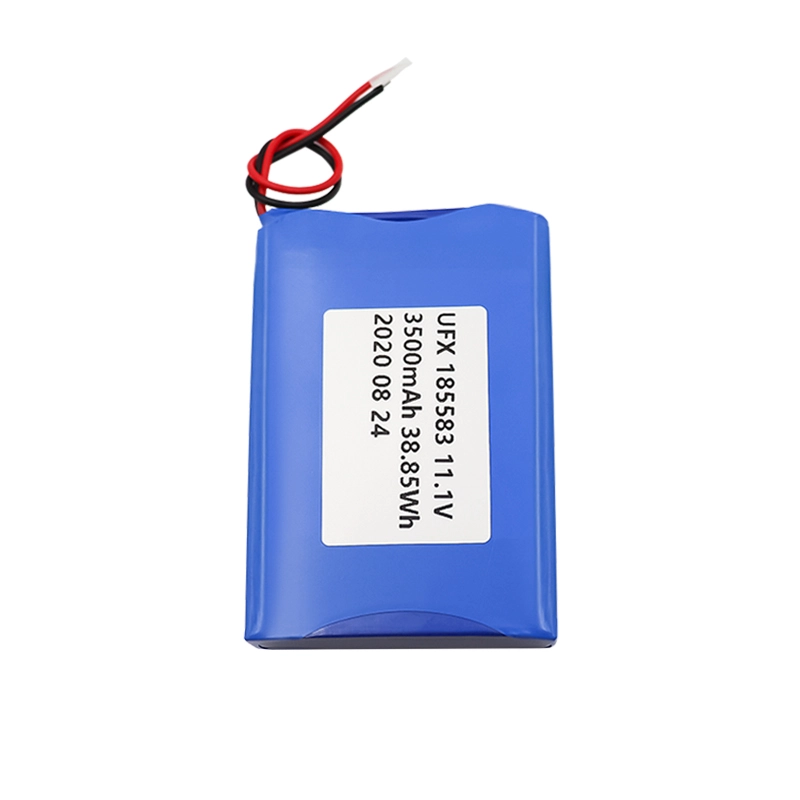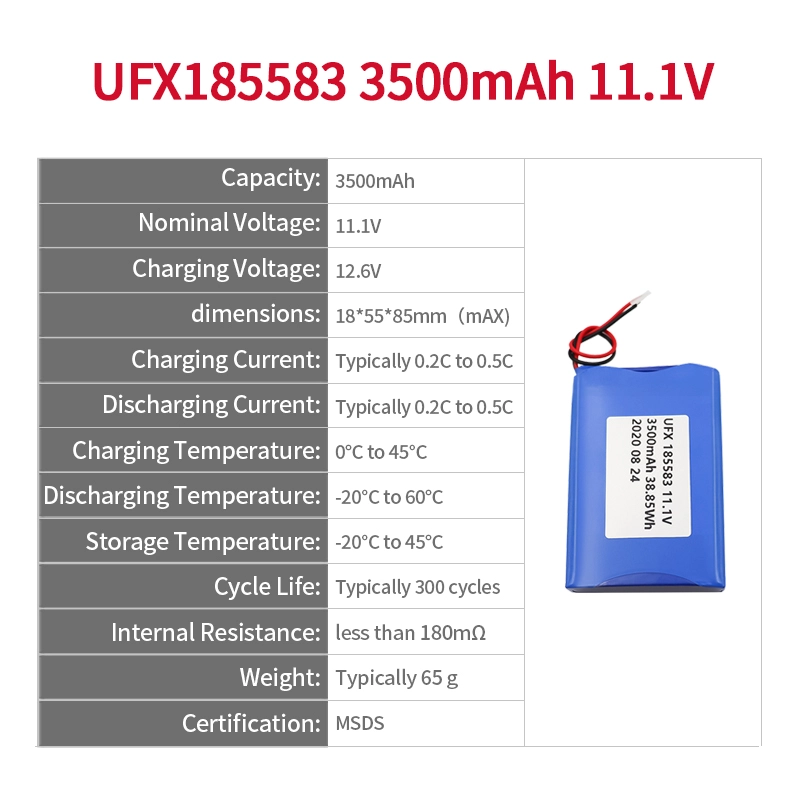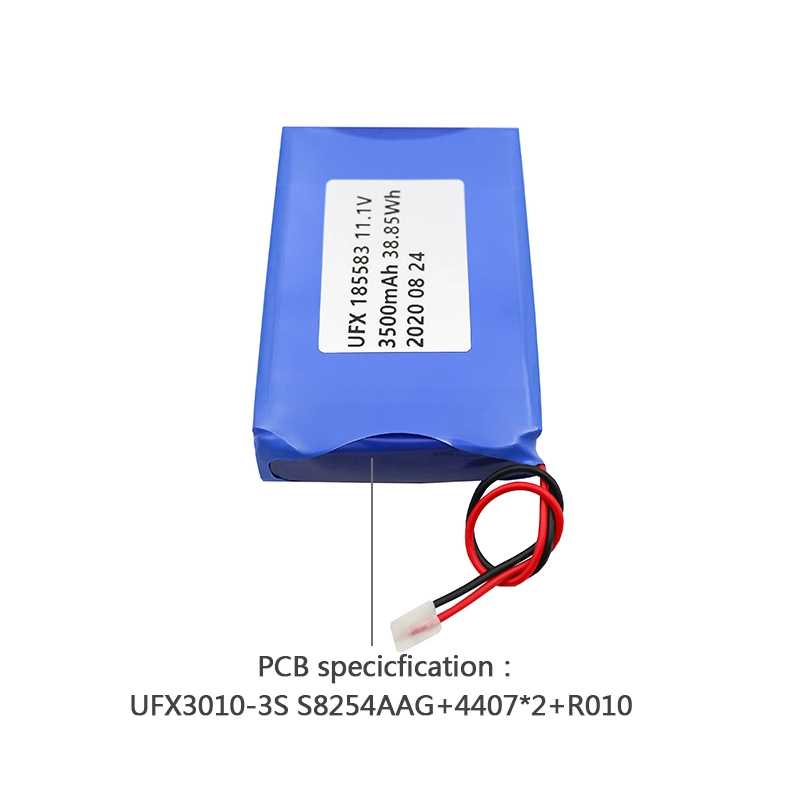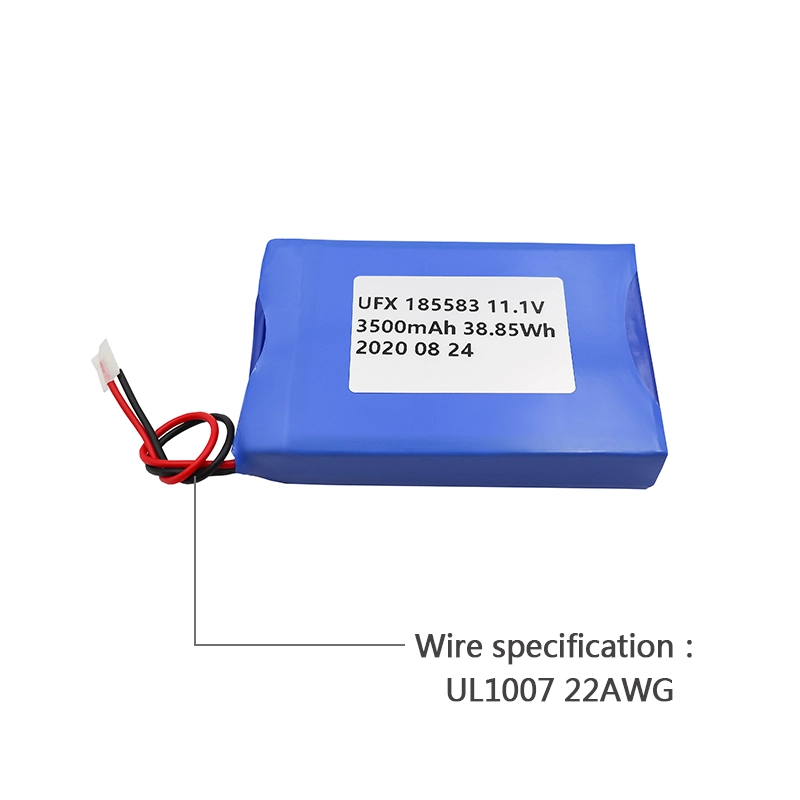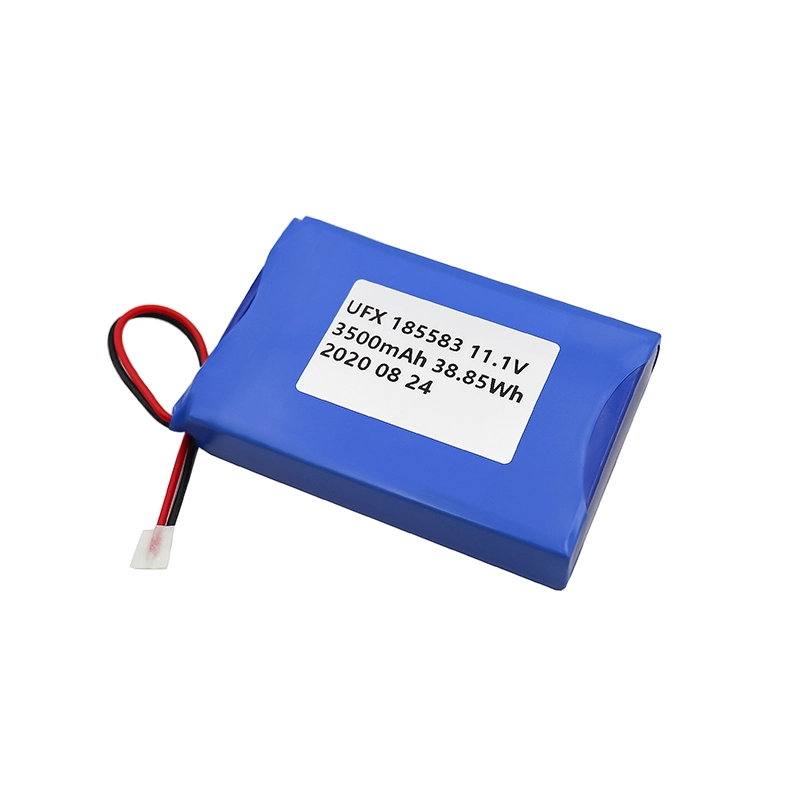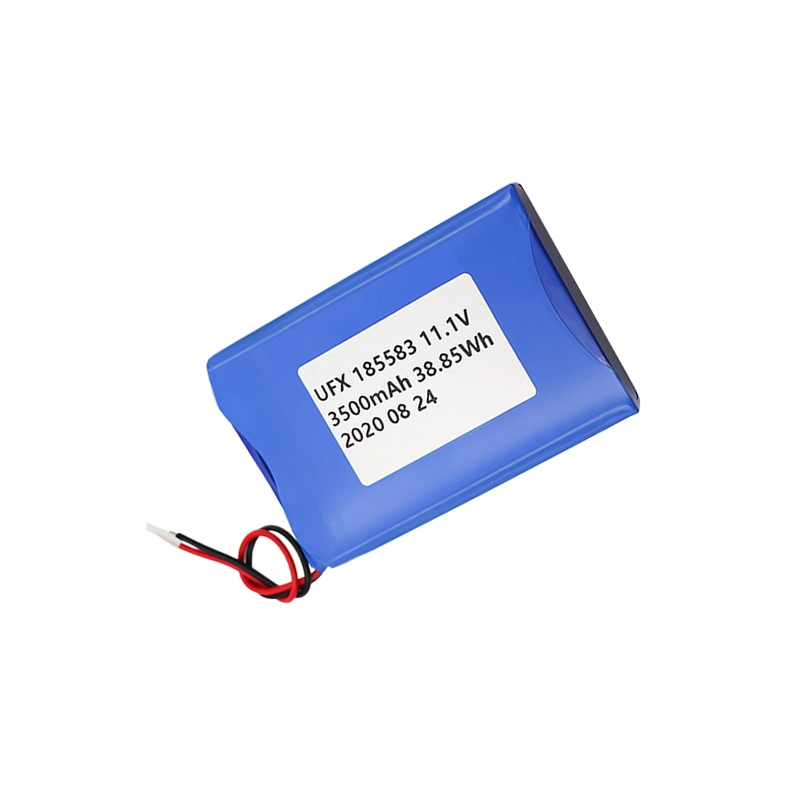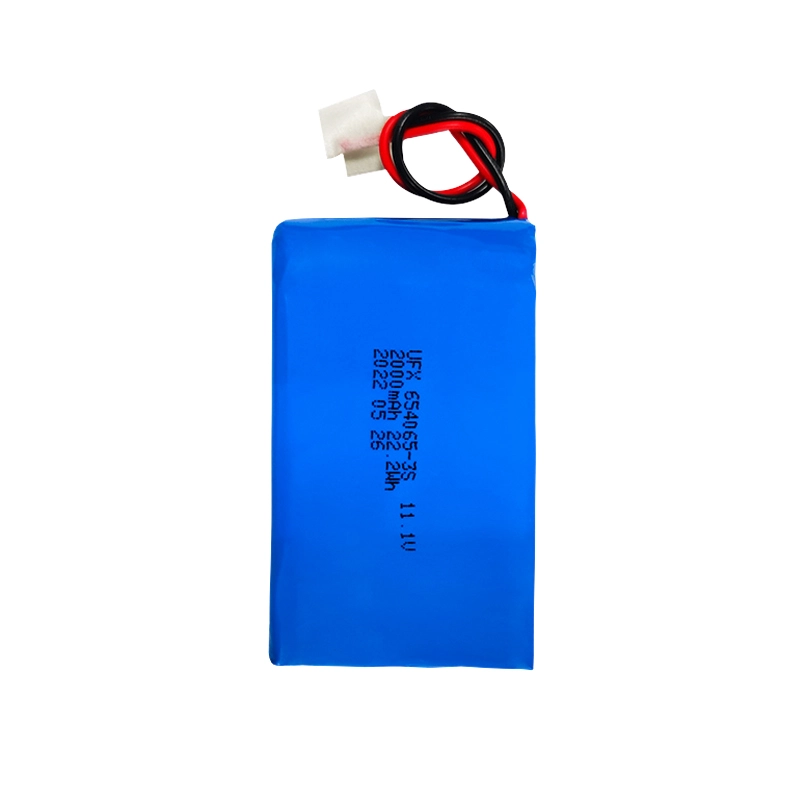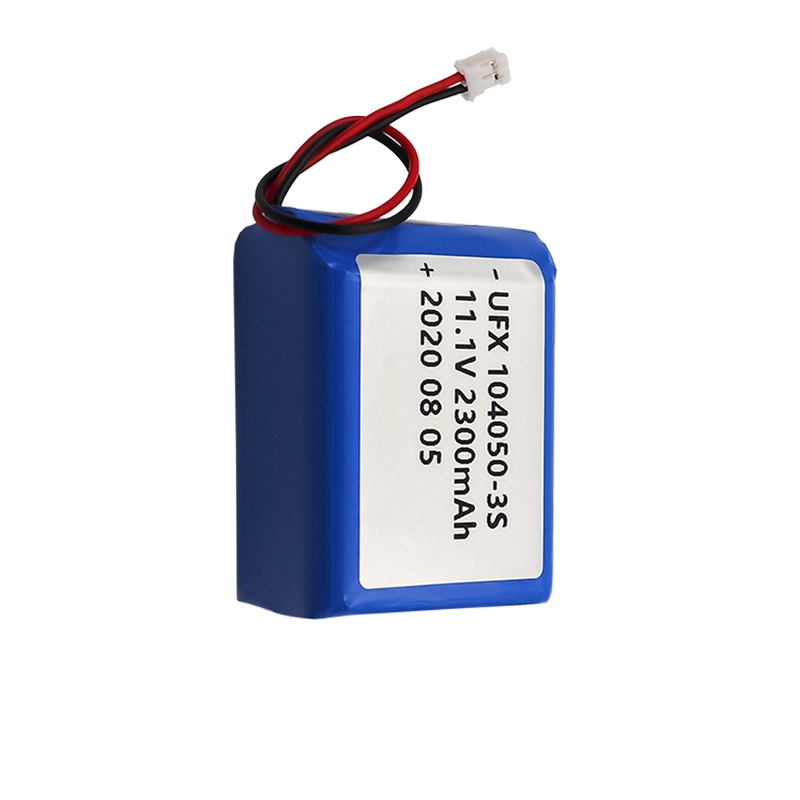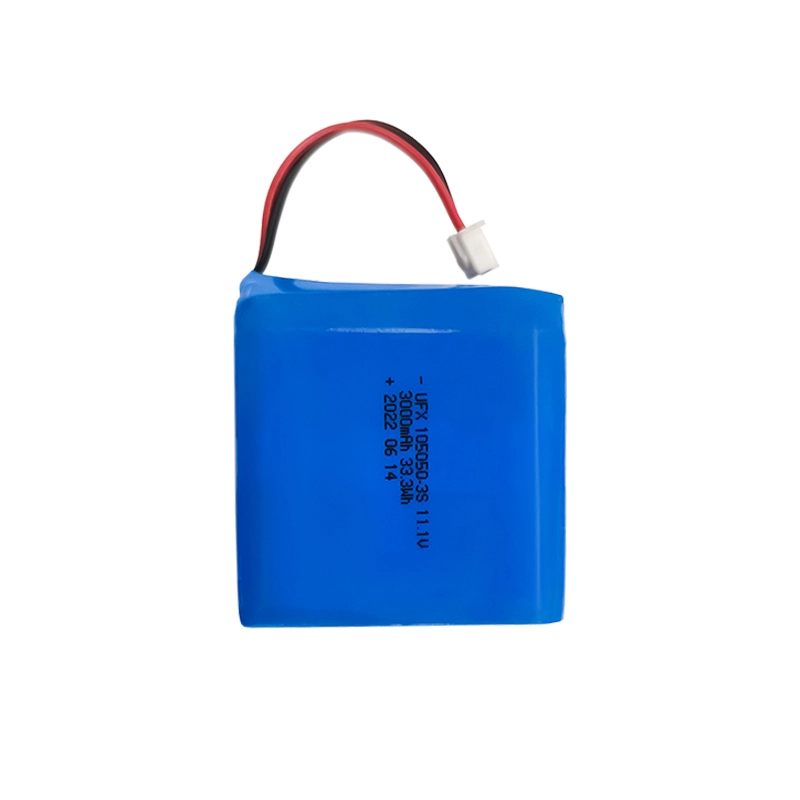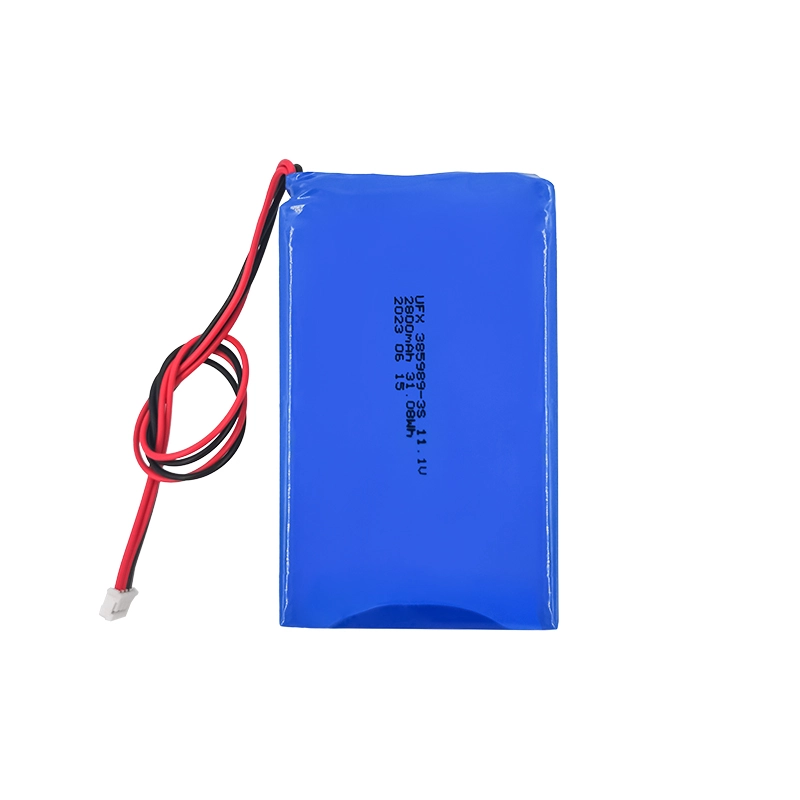-
Product Details
-
Specs
-
Capacity Fast Calculator
-
Application
-
Content
-
FAQs
-
Reviews

Product Details
Discharge Rate
Long Cycle Life
Ultra-Low Self-Discharge
Wide Temperature Range
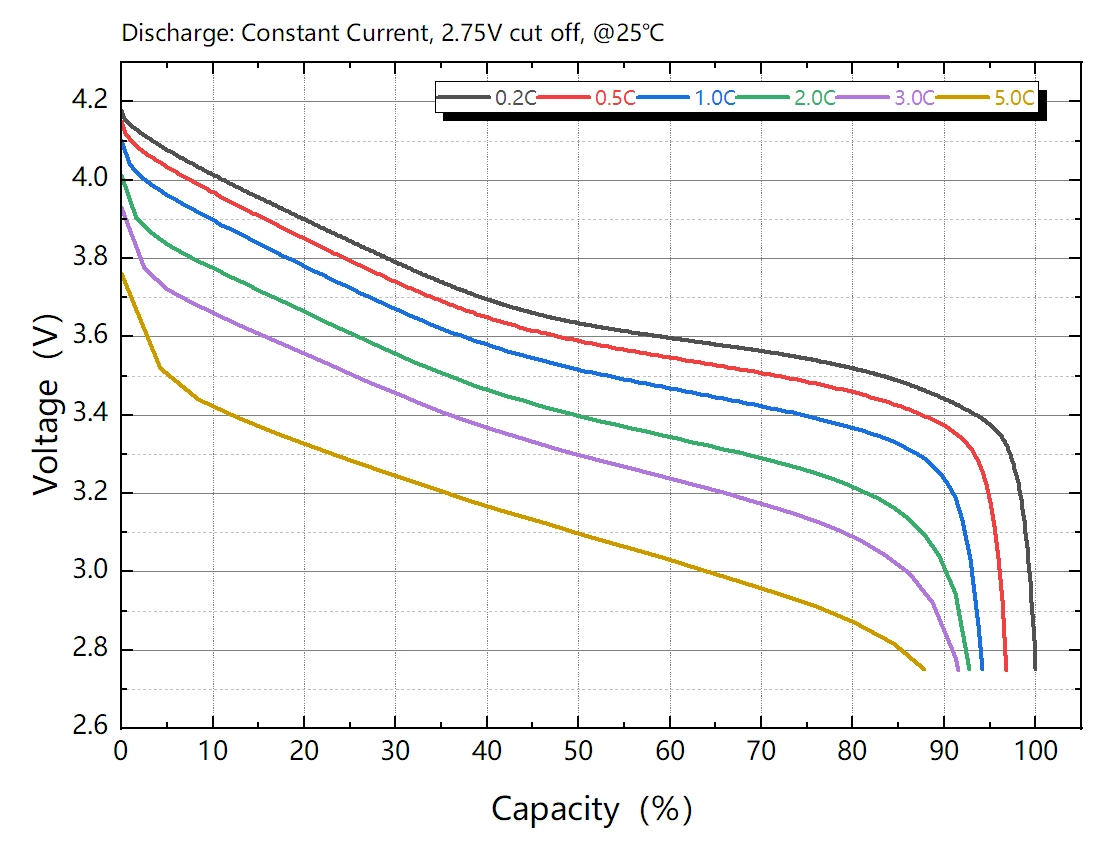
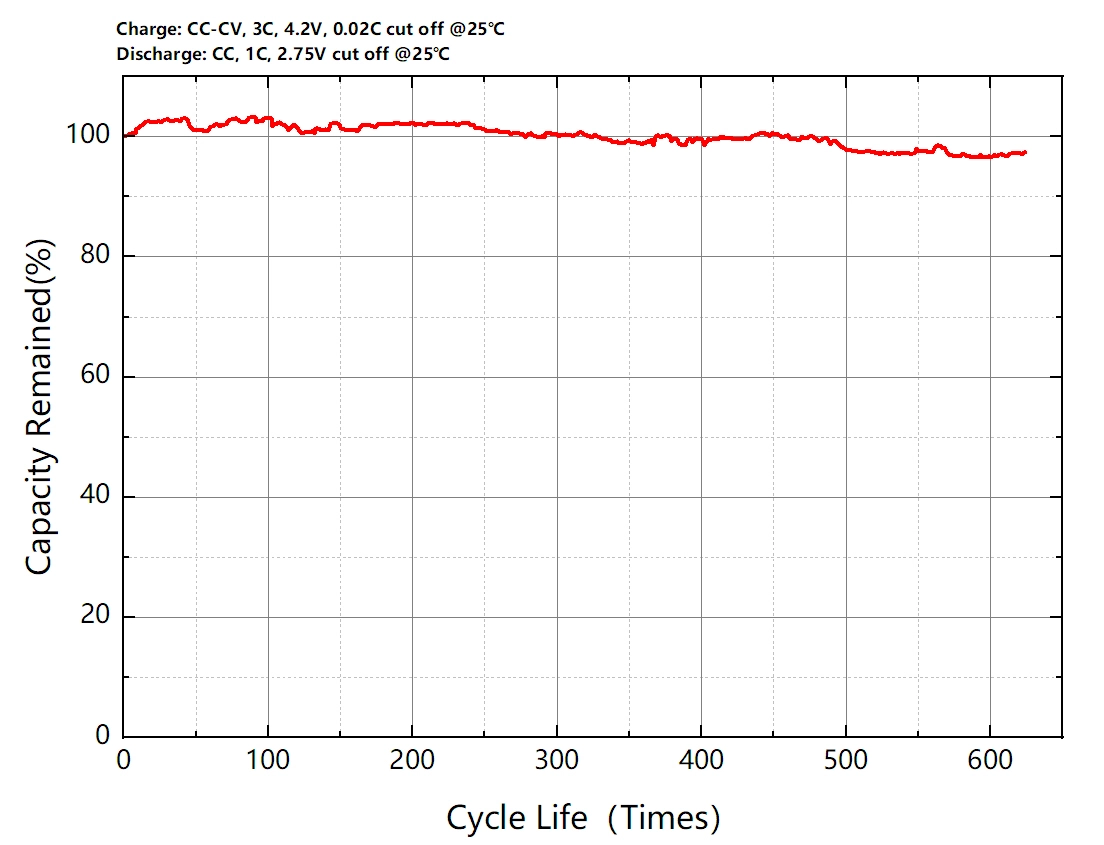
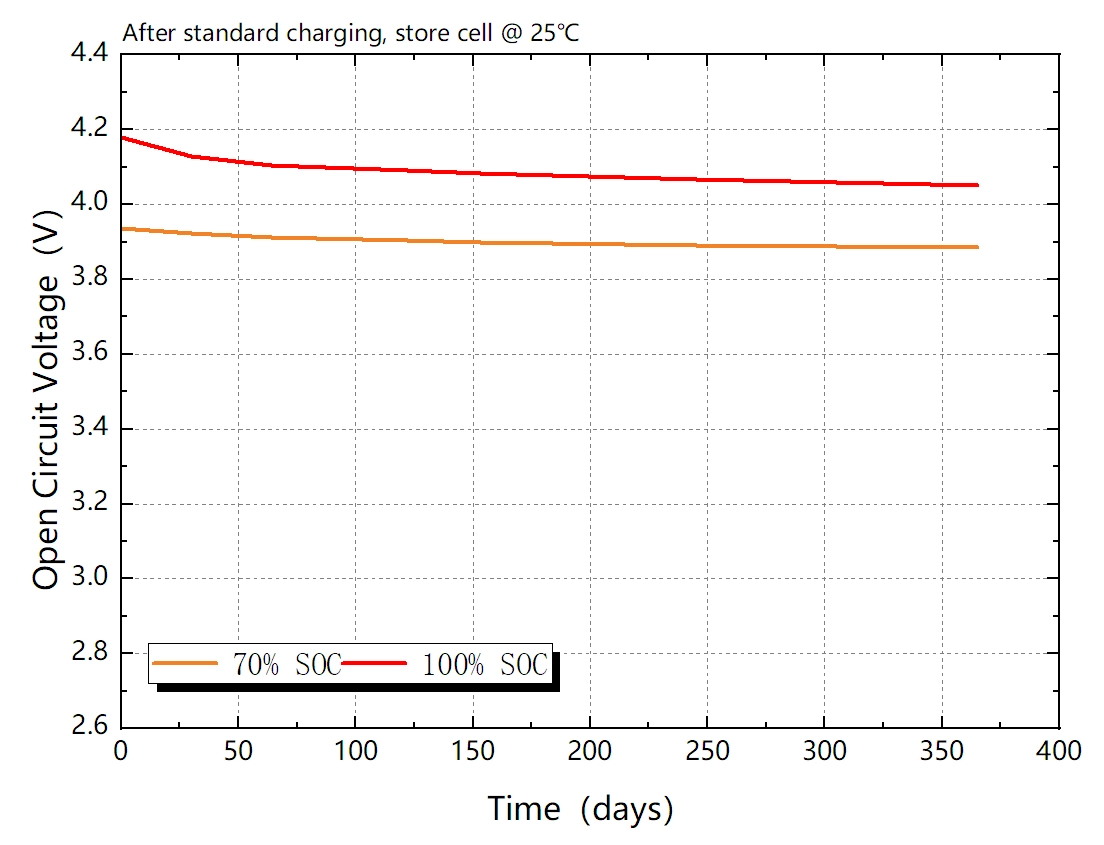
Self-discharge is higher at 100% state of charge (SOC) compared to 70% SOC.
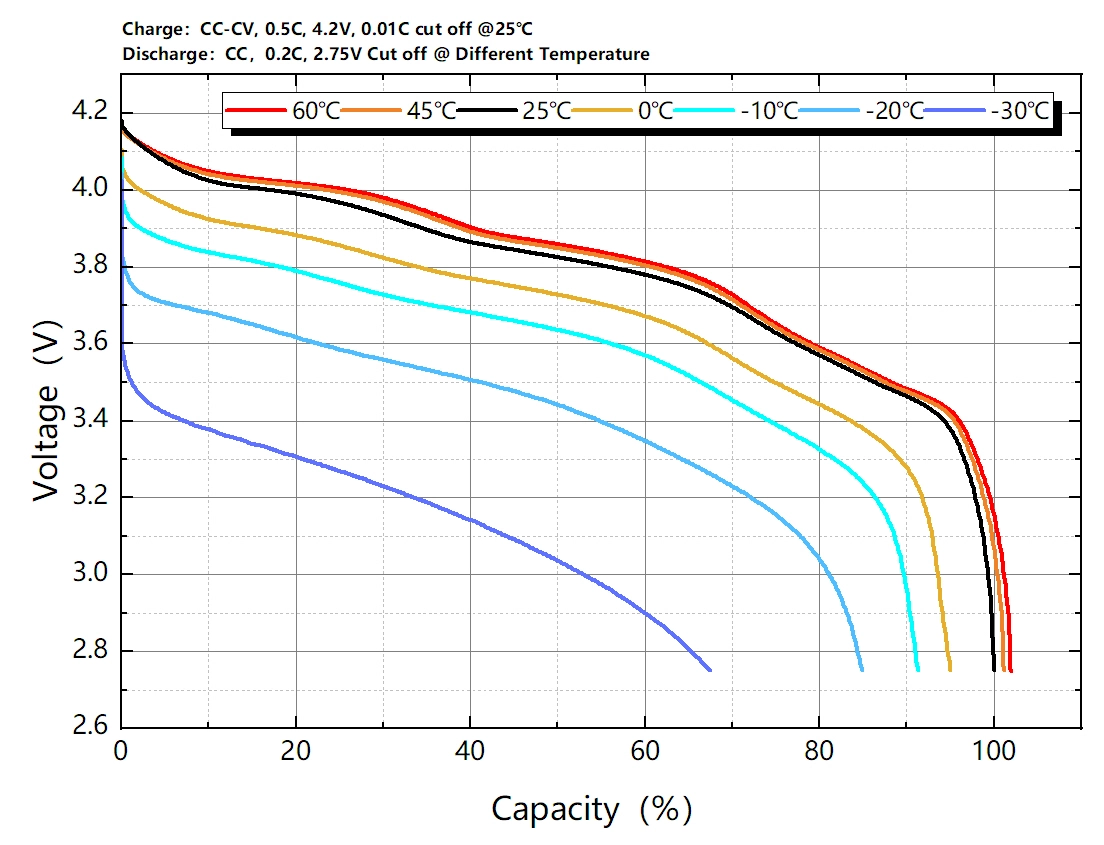
Ufine's custom low-temperature batteries can be used for -40°C to 55°C operation, catering to diverse outdoor scenarios.
Battery Power Check
Before shipment, each lithium battery undergoes comprehensive testing to verify its voltage, current, and charging and discharging parameters, ensuring compliance with standard operational levels for reliable functionality.
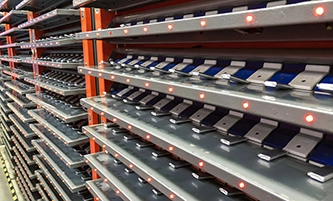

Sustainable Manufacturing
Employing A-grade battery cells, these leak-proof batteries maintain an eco-friendly design, prioritizing environmental sustainability in their production and usage.
Applications
The battery is designed for use in various applications, including but not limited to high-performance drones, RC aircraft, professional-grade cameras, and medical equipment.
Battery Specification
-
1. Mechanical Characteristics
Cell 185583-3S PCM Yes NTC No Weight appr. 65g Configuration 3S1P -
2. Electrical Specification
Capacity 3500mAh Nominal Voltage 11.1V Energy 38.85Wh Internal Resistance less than 180mΩ Max. Charge Voltage 12.6V Discharge Cut Off 8.25V Max. Charge Current 3500mA Max. Discharge Current 3500mA Standard Charge Current 700mA Standard Discharge Current 3500mA Charging Temperature 0℃ to 45℃ Discharging Temperature -20℃ to 60℃ Storage Temp. Range 1 year at -20℃ to +30℃ 3 mos. at -20℃ to +45℃ 1 mo. at -20℃ to +60℃ Cycle life 100 cycles ≥92% 300 cycles ≥88% 500 cycles ≥80% -
3. Cell protection
Overcharge Detection 4.28V ±50mV (80 to 200msec delay, release 4.08V ±50mV) Overdischarge Detection 2.7V ±80mV (50to 150msec. delay, release 3.0V ±100mV) Overcurrent Detection 2.5A to 4.5A (5 to 10msec. delay) Short protection Yes
Lipo Battery Cell Capacity Fast Calculator
Please enter your battery information to calculate the battery capacity and energy.
The capacity calculated by this tool is only an approximate value. If you need an accurate assessment, please contact our professional engineers.
11.1 V 3500mAh Lithium Ion Battery Application
Lithium Polymer Battery For Glucose Meter
Our lithium batteries for glucose meters excel in high energy density, ensuring prolonged and consistent power for accurate readings. Their exceptional low-temperature resistance guarantees reliable performance in various environmental conditions, crucial for uninterrupted usage in healthcare settings. With customizable shapes, these batteries seamlessly integrate into different glucose meter designs, providing reliable and customizable power solutions for diabetic patients.

Lithium Polymer Battery For Digital Thermometer
Specifically designed for digital thermometers, our lithium batteries offer high energy density, ensuring prolonged and consistent power for accurate temperature readings. Their robustness and adaptability in shape enable effortless integration into diverse thermometer models, providing reliable and unobtrusive power solutions. Additionally, their reliability in varied temperature conditions ensures uninterrupted performance, crucial for precise healthcare monitoring.

Lithium Polymer Battery For Pulse Oximeter
Tailored for pulse oximeters, our lithium batteries offer high energy density, ensuring prolonged and consistent power for accurate readings. Their adaptable shapes facilitate easy integration into various pulse oximeter designs, ensuring reliable and enduring power solutions. Moreover, their exceptional temperature resistance guarantees consistent performance, crucial for accurate health monitoring in different environmental conditions.

Lithium Polymer Battery For Blood Pressure Monitor
Our lithium batteries are designed to power blood pressure monitors, ensuring consistent and lasting energy for accurate readings. With exceptional resilience in varying temperatures, these batteries provide reliability even in demanding healthcare environments, ensuring uninterrupted monitoring vital for patient care. Their adaptable shapes seamlessly integrate into different monitor models, offering healthcare professionals reliable and customized power solutions.

Lithium Polymer Battery For ECG
Tailored for ECG machines, our lithium batteries offer high energy density, providing enduring power for precise heart readings. Their durability and adaptability in shape ensure effortless integration into diverse ECG devices, maintaining reliable power for accurate diagnostics in hospitals or clinical settings. Moreover, their remarkable temperature resistance ensures consistent performance, crucial for accurate and reliable heart monitoring in any environment.

The Complete Guide For 11.1 V 3500mAh Lithium Ion Battery
An 11.1 V 3500mAh lithium-ion battery serves as a crucial power source for various electronic devices. This guide delves into its components, functionalities, and best practices for optimal use.
Part 1. Advantages and Applications
The 11.1 V 3500mAh lithium-ion battery strikes a balance between voltage and capacity, making it advantageous for devices requiring moderate power in a compact form. Its versatility extends to various applications, such as powering small drones, professional photography equipment, portable medical devices, or handheld electronics, ensuring efficient power support.
Part 2. Technical Specifications
Featuring an output voltage of 11.1 V and a capacity of 3500mAh, this battery efficiently stores and delivers power. Its moderate voltage and substantial capacity make it suitable for devices where a balance between power and size is essential, such as high-performance cameras, remote-controlled devices, or small robotics.
Part 3. Safety and Handling
Safety features are integral. This battery incorporates safeguards against overcharging, over-discharging, and short circuits, ensuring safe and reliable operation. Proper handling practices, including avoiding extreme temperatures and physical damage, are crucial for user safety and maximizing the battery's lifespan.
Part 4. Maintenance and Longevity
Maintaining the battery's health is essential for sustained performance. Following recommended charge-discharge cycles, avoiding deep discharges, and conducting periodic checks for physical damage are vital practices. Regular firmware updates optimize efficiency, ensuring extended longevity for the 11.1 V 3500mAh Lithium-ion Battery.
Part 5. Buying Guide and Recommendations
For reliable and customized solutions, consider sourcing your 3500mAh 11.1 V lithium-ion batteries from Ufine custom battery. Our commitment to quality assurance and tailored battery solutions ensures dependable performance for your specific needs.
FAQs
-
How does it differ from individual lithium-ion cells?
A lithium-ion battery pack combines multiple cells to offer higher voltage and capacity than individual cells, suitable for high-power applications such as electric vehicles and military batteries. -
What safety features are integrated into lithium-ion battery packs to ensure secure operation during charging, discharging, and storage?
These packs include protection circuits, thermal controls, and balancing systems to ensure safety and stable operation under various conditions. -
How are lithium-ion battery packs managed to optimize performance and longevity?
Battery management systems within the packs monitor individual cell parameters, ensuring balanced charging and discharging to maximize performance and lifespan. -
How long does it take to fully charge a lithium battery?
Charging time depends on the battery's capacity and the charger's current. For example, if the battery capacity is 4000mAh and the charger current is 2500mA, charging time = 4000mAh / 2500mA = 1.6 hours. -
How long do lithium batteries last?
Our lithium battery cycle life is more than 500 times. The lifespan of a lithium battery depends on various factors, such as usage patterns, charging and discharging conditions, and overall maintenance. -
Can lithium batteries be customized for specific applications?
Yes, lithium batteries can be customized to meet specific requirements. This includes customizing the battery capacity, voltage, size, shape, and other parameters to suit the application's needs. Capacity: 20mAh~12000mAh, Voltage: 3.2 V~48 V.
Reviews
High Energy Density
It stores large amounts of energy in a smaller and lighter package
Longer Cycle Life
Withstands extensive charge and discharge cycles
Low Self-Discharge
Maintains power longer when not in use
Safety
Minimizes the risk of accidents and ensures safe operation
Related Articles
About Lithium Battery Industry News
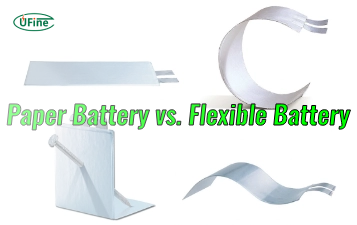
Paper Battery vs. Flexible Battery: What's the Difference and Which Is Better?
Paper vs. flexible batteries: learn the key differences, benefits, and which power source fits best for wearables, sensors, and smart tech.
2025-4-11 Ufine
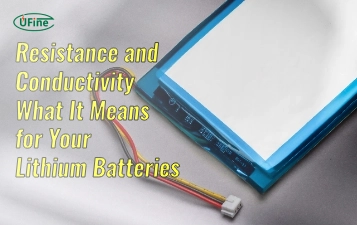
What to Know Before Buying a Tiny LiPo Battery for Your Project
Tiny LiPo batteries are powerful and compact. Learn how to choose the right one for your project with specs, safety, and charging tips.
2025-4-11 Ufine

Bloated LiPo Battery: Will It Explode?
Will a bloated LiPo battery explode? Discover the causes, risks, safety steps, and expert tips to avoid disaster and protect your gear. Must-read safety guide!
2025-4-10 Ufine
